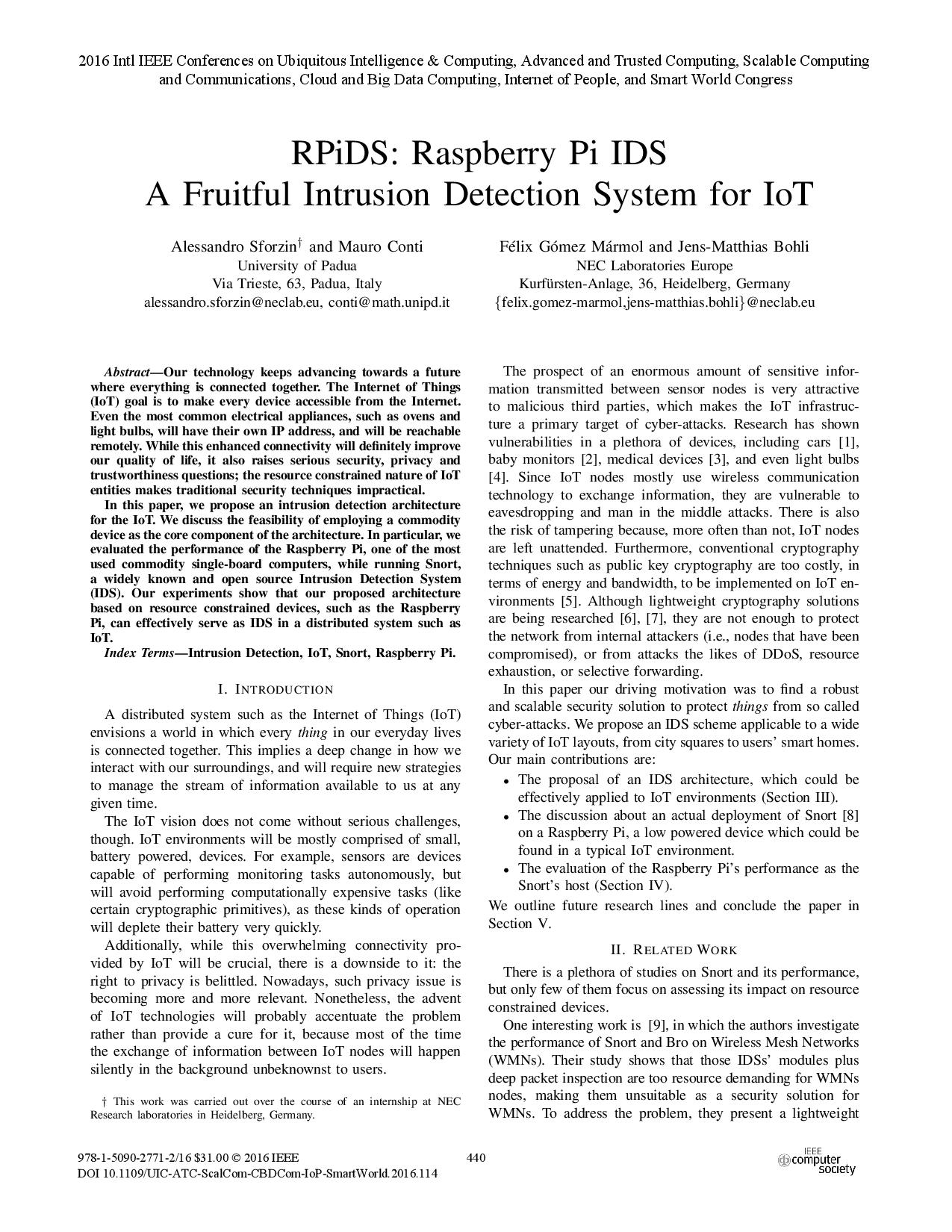Our technology keeps advancing towards a future where everything is connected together. The Internet of Things (IoT) goal is to make every device accessible from the Internet. Even the most common electrical appliances, such as ovens, light bulbs, will have their own IP address, will be reachable remotely. While this enhanced connectivity will definitely improve our quality of life, it also raises serious security, privacy, trustworthiness questions, the resource constrained nature of IoT entities makes traditional security techniques impractical. In this paper, we propose an intrusion detection architecture for the IoT. We discuss the feasibility of employing a commodity device as the core component of the architecture. In particular, we evaluated the performance of the Raspberry Pi, one of the most used commodity single-board computers, while running Snort, a widely known, open source Intrusion Detection System (IDS). Our experiments show that our proposed architecture based on resource constrained devices, such as the Raspberry Pi, can effectively serve as IDS in a distributed system such as IoT.
RPiDS: Raspberry Pi IDS - A Fruitful Intrusion Detection System for IoT
13th IEEE International Conference on Advanced and Trusted Computing (ATC 2016), pp. 440-448, ISBN: 978-1-5090-2771-2, Toulouse, France
Publication year: 2016
Abstract
Related Publications

Improving attack detection in self-organizing networks: A trust-based approach toward alert satisfaction
Conference
4th International Conference on Advances in Computing, Communications and Informatics (ICACCI'15), pp. 1945-1951, ISBN: 978-1-4799-8790-0, Kerala, India
Publication year: 2015

Mobility in Collaborative Alert Systems: Building Trust through Reputation
Conference
Workshop on Wireless Cooperative Network Security (WCNS) in conjunction with the IFIP Networking 2011 Conference, LNCS 6827, pp. 251-262, Valencia, Spain
Publication year: 2011
Co-Authors
This work would not have been possible without the inestimable contribution of:
- Alessandro Sforzin
- Mauro Conti
- Jens-Matthias Bohli
Citation
Alessandro Sforzin, Félix Gómez Mármol, Mauro Conti, Jens-Matthias Bohli, «RPiDS: Raspberry Pi IDS – A Fruitful Intrusion Detection System for IoT«, 13th IEEE International Conference on Advanced and Trusted Computing (ATC 2016), Toulouse (France), 18-21/07/2016
Conference Details
- Website: 13th IEEE International Conference on Advanced and Trusted Computing (ATC 2016)
- Date: 18-21/07/2016
- Venue: University Paul Sabatier of Toulouse, Toulouse (France)




